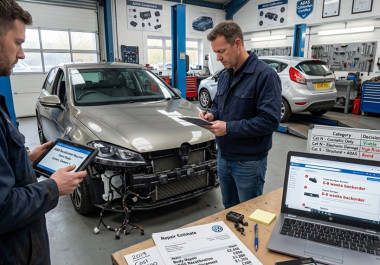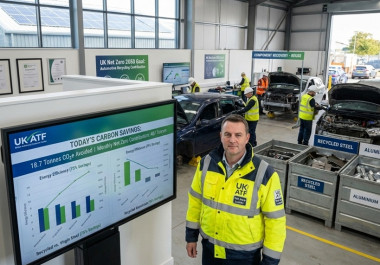Car auctions can offer fantastic opportunities for savvy buyers looking to score a great deal. However, hidden car auction fees can quickly transform a bargain into an unexpected expense. In this comprehensive guide, we’ll walk you through the various extra costs you might encounter when bidding at car auctions and share practical tips to avoid them. Along the way, we’ll share personal anecdotes and relatable scenarios to help you feel confident and well-prepared for your next auction experience.
A Fresh Look at Auction Costs
Imagine the excitement of winning a bid on your dream car only to discover later that extra charges have nudged the price well beyond your original budget. I once attended an auction with high hopes, only to be caught off guard by a slew of fees I hadn’t fully accounted for. This experience taught me the importance of understanding every element of the cost structure, including those pesky auction transaction fees. In this guide, we’ll break down the hidden fees in plain English and offer suggestions on how to manage them effectively.
1. The Basics of Auction Fees
Before you even place a bid, it’s crucial to understand that the final price you pay isn’t just the winning bid. There are several fees to consider, and recognising each one can help you manage hidden car auction fees more effectively:
-
Buyer’s Premium: A percentage of the winning bid, added to the final price.
-
Administration Fees: Fixed charges to cover paperwork and processing costs.
-
VAT and Sales Tax: Applicable taxes that may or may not be included in the quoted price.
-
Online Bidding Fees: Additional costs if you choose to bid remotely.
-
Payment Processing Fees: Charges based on your chosen payment method.
These extra costs, often categorised under auction transaction fees, can easily transform a seemingly great deal into a pricey investment if you’re not vigilant.
2. Buyer’s Premium: The Hidden Markup
The buyer’s premium is perhaps the most well-known hidden fee in car auctions. Auction houses typically add a percentage often between 5% and 10% to the final bid price. For instance, if you win a car with a bid of £10,000 and the auction applies a 10% premium, you’re looking at an extra £1,000 on top of your winning bid.
This fee is non-negotiable and can vary from one auction house to another. Always check the terms before bidding. A personal tip: I once assumed the buyer’s premium would be minimal, but a quick review of the auction terms revealed a 7% fee, which significantly altered my budget. Always do the maths beforehand!
3. Administration and Documentation Charges
Auction houses impose administration fees to cover the costs of processing paperwork, facilitating the transfer of ownership, and other administrative tasks. These fees are typically fixed amounts ranging from £50 to £300 per vehicle. Although these charges may seem modest compared to the buyer’s premium, they add up especially if you plan on bidding on multiple vehicles.
To avoid surprises, factor in these fees when preparing your budget. It might be helpful to maintain a checklist before you attend an auction, ensuring that you account for every possible cost that falls under auction transaction fees.
4. VAT and Sales Tax: Getting to Grips with Taxation
In the UK, Value Added Tax (VAT) is usually set at 20%, though how it’s applied can vary:
-
Inclusive Pricing: Some auctions include VAT in the listed price, so you pay what you see.
-
Exclusive Pricing: Others add VAT on top of the final price, which can lead to unexpected increases.
For example, if you win a car for £8,000 and VAT is applied separately, you might end up paying an additional £1,600. Always clarify with the auction house whether the VAT is included in the price to avoid any unwelcome surprises.
5. Online Auction Fees: The Cost of Convenience
Bidding online has revolutionised the auction industry, making it easier than ever to participate. However, many online platforms charge a fee for the convenience of remote bidding. These fees typically range from £30 to £60 per vehicle, and although they might appear minor, they can accumulate quickly if you’re interested in multiple vehicles.
When you’re juggling bids from the comfort of your home, it pays to keep these fees in mind. Check the auction rules and budget for the convenience charge alongside the other auction transaction fees.
6. Payment Processing Fees: Navigating the Payment Maze
How you pay for your auction purchase can also affect the total cost. Credit card transactions, for example, often come with a surcharge of 2% to 3%. Alternatively, opting for bank transfers may save you this fee, though they sometimes come with processing delays. Before making your bid, review the payment options and any related charges so you can plan your finances accordingly.
Extra Costs After You’ve Won the Auction
Winning a bid is only part of the journey. After the gavel falls, there are several post-auction costs to be mindful of. Let’s explore these additional expenses in detail.
1. Storage and Late Collection Fees
Once you win your vehicle, there’s typically a limited window, often between 24 to 72 hours for you to collect it. If you fail to pick up the car within the designated time, storage or late collection fees will be imposed, ranging from £10 to £50 per day.
A friend once delayed collecting a vehicle, assuming the extra day wouldn’t matter. Unfortunately, those additional days added a significant sum to the overall cost. To avoid such pitfalls, ensure you have a clear plan for vehicle collection or arrange transportation in advance.
2. Delivery and Transportation Costs
If collecting the vehicle yourself isn’t an option, you’ll need to consider transportation costs. Whether you use an auction house’s in-house delivery service or arrange your own transport, these fees depend on the distance and the size of the vehicle.
Compare different delivery options to find the most cost-effective solution. Sometimes, opting for in-house delivery can simplify the process and ensure that you’re not hit with exorbitant third-party fees.
3. Reconditioning and Preparation Fees
In some cases, auction houses offer a pre-sale reconditioning service that includes minor repairs or cleaning. While a well-presented car can be very appealing, these extra costs ranging from £50 to £500 are often passed on to the buyer.
Ask for a detailed breakdown of any reconditioning fees, especially if the vehicle looks exceptionally polished. In some instances, the extra cost may be justified by the improved condition of the car, but always weigh the expense against your budget and the car’s overall value.
4. Title Transfer and Registration Charges
After your successful bid, you’ll need to handle the formalities of transferring ownership and registering the vehicle. Title transfer fees in the UK usually range from £25 to £100, with additional costs possible for a new number plate or the V5C registration document.
These costs are essential to ensure that the vehicle is legally in your name, so be sure to include them in your overall cost calculation. Missing these steps can lead to delays in getting your car on the road, which might be a significant inconvenience if you need the vehicle urgently.
5. Insurance Costs: A Must-Have for Every Car
It’s illegal to drive without proper insurance, and auction vehicles can sometimes attract higher premiums, especially if the car has a history of being repossessed or written off. It’s a good idea to get an insurance quote before bidding to avoid any surprises when you’re ready to collect your car.
Shop around and compare different insurers to find the best rate for your specific situation. Insurance is an ongoing cost, so factoring it into your overall budget is crucial for long-term financial planning.
6. Inspection Fees: Investing in Peace of Mind
Even if an auction house provides a basic vehicle report, getting an independent inspection can be a wise decision. Professional inspections typically cost between £100 and £300, but they offer valuable insight into the car’s condition especially for high-value or classic vehicles.
Think of this fee as an investment in your peace of mind. Spending a little extra on an inspection now could save you from costly repairs down the line.
7. Refunds and Cancellation Fees
Auction sales are generally final. If you decide to withdraw after placing a bid, you may forfeit any deposit paid, and cancellation fees may apply. These fees are often calculated as a percentage of the final bid, meaning that backing out can be expensive.
Always read the auction house’s policies carefully before participating. Understanding the cancellation process can help you avoid penalties should circumstances change unexpectedly.
How to Mitigate Hidden Auction Fees
Understanding the full cost of buying a car at auction is the first step to managing your budget effectively. Here are some practical tips to help you navigate the auction process without falling prey to hidden car auction fees:
Research and Preparation
Before attending an auction, do your homework. Read the auction house’s terms and conditions carefully to understand all applicable fees. Look at reviews from previous buyers and, if possible, attend a few auctions as an observer. The more you know, the better equipped you’ll be to spot potential cost pitfalls.
Budgeting: Know Your Limits
Create a detailed budget that includes the winning bid, all potential fees, and additional costs like insurance and transportation. A well-planned budget helps you avoid the temptation to overspend in the heat of the moment. Use a simple spreadsheet or budgeting app to track your estimated costs and adjust as needed.
Ask Questions
Don’t hesitate to contact the auction house if you’re unsure about any fee or policy. Most reputable auction houses, such as RAW2K Vehicle Auctions, have a dedicated support team ready to help you understand fee structure. If you have any questions, you can always reach out via our Contact Page.
Compare Auction Houses
Not all auctions are created equal. Some auction houses may have lower fees or more transparent pricing structures. Take the time to compare different auction houses and consider any promotions or discounts they might offer. This research can lead to significant savings in the long run.
Use a Checklist
Create a checklist of all possible fees and double-check it before bidding. Include items such as buyer’s premium, administration fees, VAT, storage fees, and any transportation costs. This way, you’re less likely to overlook an important expense when calculating your total cost.
Consider a Professional Inspection
As mentioned earlier, investing in a professional vehicle inspection can save you from unforeseen expenses later. Although it’s an additional upfront cost, it’s worth the peace of mind especially if you’re bidding on a high-value or classic car. An inspection can reveal hidden issues that might lead to costly repairs in the future.
How RAW2K Makes the Process Transparent
At RAW2K Vehicle Auctions, transparency is at the core of the buying process. They understand that hidden fees can dampen the excitement of finding a great deal, which is why they prioritise clear, upfront pricing.
Transparent Fee Structure
Every cost is disclosed clearly before bidding. When you participate in an auction with RAW2K, you can trust that the price you see is the price you pay no unpleasant surprises later on. This approach not only builds trust but also helps you make more informed decisions about auction transaction fees.
Dedicated Customer Support
Have a question about a fee or need clarification on a particular cost? RAW2K’s dedicated support team is always available to help. Whether you’re a seasoned buyer or new to the auction scene, our friendly customer service ensures that you fully understand the process. For more detailed assistance, check out our Help Section or get in touch through the Contact Page.
Educational Resources
RAW2K goes beyond simply listing vehicles for auction. Our News and Guides section is packed with educational content designed to help buyers navigate the auction landscape. One particularly useful guide is the Guide to Police Car Auctions, which offers insights into a niche yet fascinating part of the car auction world.
A Range of Auction Options
RAW2K offers a diverse selection of auctions, ensuring there’s something for everyone. Whether you’re interested in standard cars, Motorcycle Auctions, Motorhome Auctions, Truck Auctions, or Van Auctions, you can expect the same level of transparency and service across the board. They also provide daily auctions, with dedicated pages for each day of the week, helping you find a time slot that fits your schedule.
Real-Life Scenarios: Learning from Experience
To make all these points more relatable, consider this scenario:
You attend an auction with a well-researched budget and a clear understanding of potential extra costs, including both hidden car auction fees and auction transaction fees. During the auction, you win a bid on a car that initially appears to be a fantastic deal. However, because you’ve taken the time to factor in the buyer’s premium, administration fees, VAT, and even potential storage costs, you’re not caught off guard when the final price comes together. Instead of feeling frustrated or out of pocket, you walk away with a valuable asset that fits within your financial plan.
On another occasion, a colleague of mine didn’t research thoroughly and ended up with unexpected delivery and inspection fees. He later shared that the experience, although stressful at the time, was a valuable lesson in the importance of detailed planning and budgeting. These real-life examples underscore the importance of not just bidding smartly but also preparing for every eventuality.
Practical Tips to Save Money at Car Auctions
While hidden fees are an inherent part of the auction process, there are strategies you can employ to minimise their impact:
-
Plan Ahead: Arrive at the auction with a detailed budget that includes every possible fee.
-
Stay Informed: Regularly review the auction house’s fee structure. Sign up for newsletters or follow our News Section for updates.
-
Ask for Clarifications: Never hesitate to ask questions before placing a bid whether it’s about VAT, buyer’s premium, or any other charge.
-
Compare Options: Evaluate multiple auction houses and choose the one that offers the best transparency and lowest fees for your needs.
-
Leverage Promotions: Some auctions offer discounts or promotional rates on certain fees. Keep an eye out for these deals as they can make a significant difference.
-
Consider Group Bidding: If possible, coordinate with friends or fellow buyers. Sometimes, pooling resources for inspection fees or transportation can lead to better deals.
Frequently Asked Questions (FAQs)
To help clear up any lingering uncertainties, here are some common questions and answers regarding hidden fees in car auctions:
Q: How do I calculate the total cost of my auction purchase?
A: To determine the full cost, add the hammer price, buyer’s premium, administration fees, VAT (if applicable), storage fees (if needed), and any transportation or inspection costs. Creating a simple checklist can be a useful tool in this process.
Q: Are buyer’s premiums standard across all auctions?
A: Yes, most auctions charge a buyer’s premium, but the percentage can vary. It’s important to confirm the exact rate before bidding to ensure it fits within your budget.
Q: What happens if I can’t pay an auction fee?
A: Failing to pay the required fees can lead to penalties, including the cancellation of the sale and, in some cases, additional charges. Always ensure you understand the fee structure and have the funds available before bidding.
Q: Can I avoid paying VAT?
A: VAT is a legal requirement in the UK, and while some auctions include it in the listed price, others add it separately. Always verify whether the price you see is inclusive of VAT to avoid unexpected costs.
Q: Is it worth paying for a professional vehicle inspection?
A: In many cases, yes. A professional inspection, which costs between £100 and £300, can reveal hidden issues that might lead to expensive repairs later on. It’s an investment in ensuring you’re making a sound purchase.
Final Thoughts: Empowering Your Auction Experience
Hidden fees at car auctions are a reality, but with the right knowledge and preparation, they don’t have to derail your plans. By understanding every element from the buyer’s premium to storage fees and keeping a keen eye on auction transaction fees, you can bid with confidence, knowing that you’re fully aware of all potential costs. Thorough research and budgeting are your best allies when navigating the auction scene.
At RAW2K Vehicle Auctions, transparency and customer support are paramount. Our commitment to clear pricing and a user-friendly experience ensures that every bidder is well-informed from start to finish. If you’re ready to explore the exciting world of car auctions without any hidden surprises, why not start with RAW2K? Explore our Car Auctions Page or check out our Featured Auctions for a selection of vehicles that might just be your next great find.
For more assistance or if you have any questions, don’t hesitate to reach out through the Contact Page or browse the extensive Help Section on our website.




